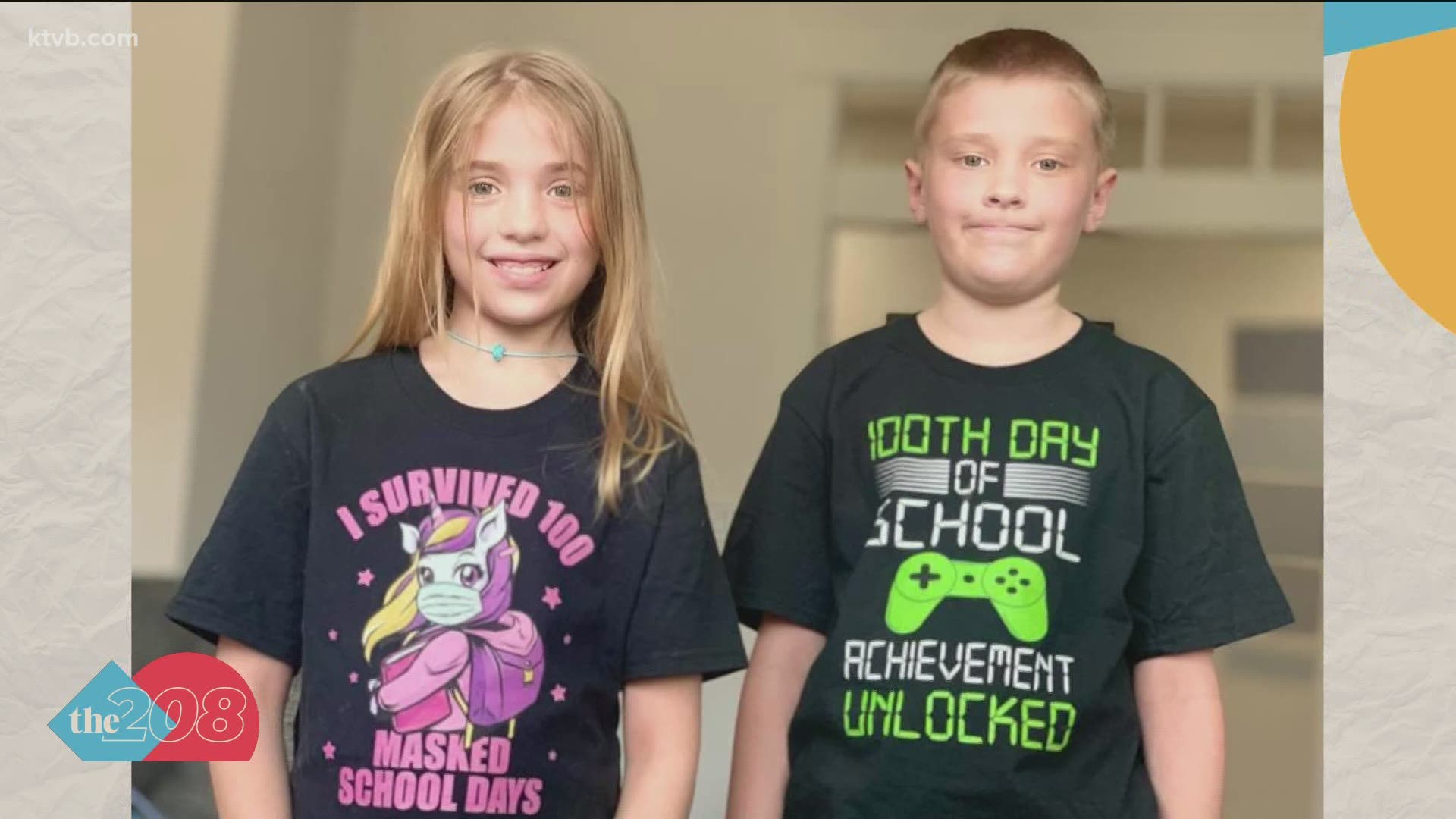BOISE, Idaho — It has been over a year since the first confirmed case of COVID-19 made its way to the United States. Next Saturday, March 13 will be the one-year anniversary of the Gem State's first coronavirus case.
The pandemic has impacted everyone in different aspects of life with different levels of severity. While several Idaho schools begin to finally return to in-person learning, many learned from home or were on a hybrid model for most of the year.
Teia Seamans is a mom of two children attending a school in the West Ada School District. Her kids are now back to in-person learning full-time, but she said during the long period of time where they were not, she noticed a change in her children’s behavior.
“They didn't do so well hybrid, my daughter definitely does better in class, my son would finish his whole weeks’ worth of work in an hour and be done, so he wasn't challenged enough,” Seamans said. “Keeping them out of school, not only are they more behind academically but their social skills are lacking, we've definitely seen areas of work that need to be done to catch them back up.”
Dr. David Peterman, the CEO of Primary Health Medical Group, explained to KTVB that the behavioral changes Seamans noticed in her children are a common theme.
“I have practiced many years and honestly, I have never had so many children brought to me with issues of depression and anxiety,” Peterman said. “There's clearly been increased issues related to mental health with both elementary-aged children and teenage children.”
Peterman said when evaluating adolescent patients he asks three questions how things are at home, with friends, and at school. Now, two of those important issues have been taken away from many children
“There's a certain level among many many many many kids who just miss their friends, they want to be in school, in a normal way, they are frustrated, they are not doing as well and then if you put on top of that, the stress among the parents, the kids feel that,” he said.
As many students begin to return to full-time in-person learning, Peterman wants parents to be prepared that things are not back to normal just yet.
“When kids first get to school, it’s not going to be normal, it’s not going to be that everything is all better, in fact, they may get more frustrated because they being to see they are behind in math, behind in science,” Peterman said.
Join 'The 208' conversation:
- Text us at (208) 321-5614
- E-mail us at the208@ktvb.com
- Join our The 208 Facebook group: https://www.facebook.com/groups/the208KTVB/
- Follow us on Twitter: @the208KTVB or tweet #the208 and #SoIdaho
- Follow us on Instagram: @the208KTVB
- Bookmark our landing page: /the-208
- And we also turn each episode into a podcast or Podbeam
- Still reading this list? We're on YouTube, too:

